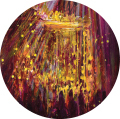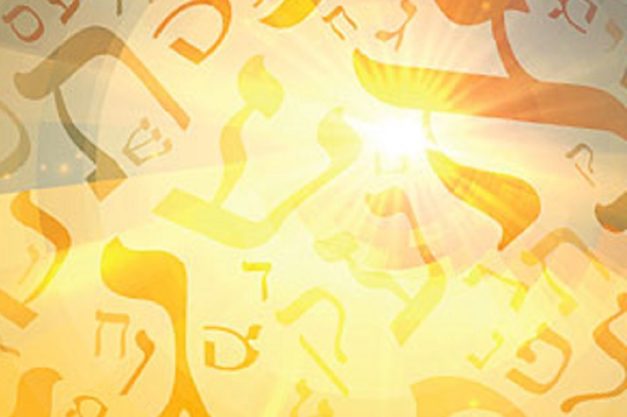In Clear View

Sight is more than a physical capability

I
magine being born into this world as an adult. We’d enter this world, glance around, and we simply wouldn’t be able to stop staring.
The color. The expanse. The beauty. A rose in bloom. A bubbling waterfall. The love in a mother’s eyes.
Instead of old, tired eyes, we’d see the world with a sense of newness and appreciation. Everywhere we turned, we’d be enthralled.
This, notes the Chovos Halevavos (Shaar Cheshbon Hanefesh, chapter 3), is how we should look at the world each and every day. The brachah of pokeiach ivrim, thanking Hashem for our sight, reminds us of our eyes latent capacity to be a portal for wonder.
View of Joy
This incredible brachah, says Rav Shimshon Pincus, contains a formula for closeness to Hashem. Each day, Hashem opens our eyes and gives us so many sights that bring us joy. Our families. Our homes. Special possessions.
And each of these gifts weren’t given to us in monochrome, but in the most exquisite palette of color. The colorful hues of the world give us so much pleasure. Every morning, this brachah is an opportunity to pause, think, and thank Hashem for the beauty we experience in this world, and the pleasure these sights bring us.
Rav Pincus also highlights the sophistication of our faculty of sight. Two eyes take in information, which is merged in the brain. It registers color, depth, distance — and the emotional register of what we see. Our eyesight is more complex and intricate than the most state-of-the-art camera.
Rav Shimon Schwab suggests that before saying this brachah each morning, we should close our eyes for a few seconds, and upon opening them, have a deeper appreciation of how much pleasure we derive from the ability to see.
A Spiritual Gift
But sight is more than a physical capability. Rav Moshe Bernstein, in Laboker Rinah, explains that on a deeper level, sight is the ability of the neshamah to see beyond the physical limitations of the body. It’s a spiritual gift. That’s why each morning we thank Hashem now, today, for once again granting us this gift.
It’s not only our ability to see, but what we see, that’s a heavenly gift, notes Rav Efraim Fordham in L’fanav Navod. How many of us intone on a weekly (or daily!) basis the tefillah for finding lost objects? In this short tefillah we express that everything is really hidden from us, until Hashem opens our eyes. When He does so, we’re able to see that which is in front of us. We learn this from the Torah. Hagar was in the desert, and her son Yishmael was dying of thirst. The Torah says, “Hashem opened her eyes” and she saw the well with its life-giving waters. The well was there all the time — but Hagar needed the gift of sight to perceive it.
What implications does this have for us today?
Each and every thing that we see — and when we see it — is directed by Hashem, and tailored for each individual. Which, of course, gives us pause. If I saw this old lady struggling with her shopping, it must be that I need to help. If that kid came into my field of vision, it must be that Hashem wants me to stop and ask if he’s okay. What we see isn’t random; it forms a level of obligation.
On a global scale, scientific and medical discoveries, technological inventions and developments, are also directed by Hashem. They come to light at the exact time the world needs them. In fact, there’s a concept called multiple discovery, documenting the fact that many discoveries are made by multiple scientists working independently of each other and in different locations. Calculus, the existence of sunspots, the electrical telegraph, and adrenalin are just four examples in a long list of discoveries that were made almost simultaneously by scientists around the world. Clearly, there’s a level of hashgachah here: When the world needs a scientific advancement, Hashem opens not just one pair of eyes, but a few.
The Chofetz Chaim once explained that electricity was created because the general level of stamina had weakened, and people found it hard to learn at night by the light of the candle. When seen in this way, we can appreciate that new inventions are mediums to be used to serve Hashem. Indeed, newness itself is one of the best ways to counter the forces of the yetzer hara that tries to make us lethargic, too weary to invest in our relationship with Hashem. This brachah reminds us to constantly open our eyes to all the opportunities presented to us each day, opportunities that enable our bond with Hashem to remain strong and vibrant.
Spiritual Sight
The Malbim (Tehillim 146:8) explains the phrase pokeiach ivrim to refer not just to what we see, but to insight, the ability to discern things on a spiritual level. Rav Alexander Mandelbaum in Aromimecha Elokai Hamelech explains that this brachah thanks Hashem for giving us our spiritual eyes: parents, mentors, and teachers who show us the correct path and guide us along it. It also thanks Hashem for all the commentators on the Torah, who help us discover the meaning of Torah and mitzvos and help us understand Hashem’s will.
Rav Gamliel Rabinowitz points out that that word pokeiach is related to pikach, wise. Each day we thank Hashem for helping direct us in our avodas Hashem, enabling us to be that much wiser. We know that the leaders of the generation are referred to as “einei ha’eidah” the “eyes of the people.” These great men open the eyes of the people, helping them navigate through that generation’s challenges. This brachah thanks Hashem for these leaders in every generation.
The Midrash on Tehillim 146 states that in the future, Hashem will heal everyone who is sick. He’ll start by restoring the gift of sight to those who are blind. The Midrash continues to explain that this does not refer only to those who are blind on a literal level. It includes those who lack understanding: who read and don’t comprehend what they’re reading; those who learn, but don’t understand what they’re learning. In the future these people will be enlightened. Laboker Rinah points out the precondition needed for this act of healing. We must realize that we are blind, and that we need Hashem to open our eyes. Dovid Hamelech exclaimed, “Unveil my eyes that I may perceive wonders from Your Torah” (Tehillim 119:18). Each morning, this brachah is a request from Hashem to open our eyes to a deeper understanding and appreciation of the depth and beauty of Torah.
In particular, when we’re going through a difficult time, and need guidance from Above, this brachah is an opportune time to ask Hashem to open our eyes to have the understanding and guidance that we so desperately need. When we recognize that we’re blind without Hashem’s help, then He will open our eyes to see the solutions that are suddenly crystal clear.
Real Light
Yeshayahu Hanavi would bemoan his generation “who make darkness into light, and light into darkness” (Yeshayahu 5:20). Laboker Rinah comments that those people who believe that the “light” and “glitter” of the world are the true reality are living in darkness.
The brachah of pokeiach ivrim, “Who opens our eyes,” is a constant reminder that the only real light is the light of a Torah lifestyle. Each morning, when we say this brachah, we Hashem to help us open our eyes to the world of truth. We ask not to be swept into the world of externalities, the world of superficiality, and instead infuse our days with depth and meaning.
In this multifaceted brachah, we ask that Hashem open our eyes to the right choices; choices that reflect the inner core of our being, choices that help us come closer to Him. When we live our lives with this awareness, we will feel the newness of life each and every morning.
(Originally featured in Family First, Issue 582)
Oops! We could not locate your form.



